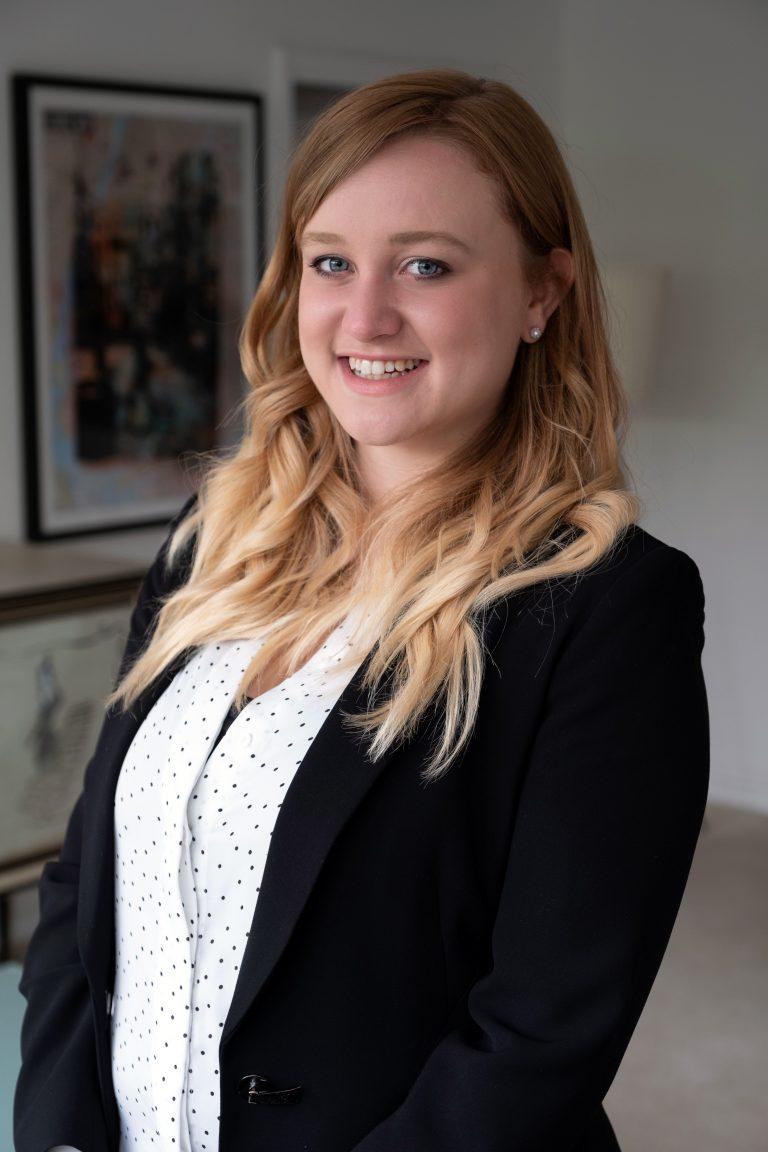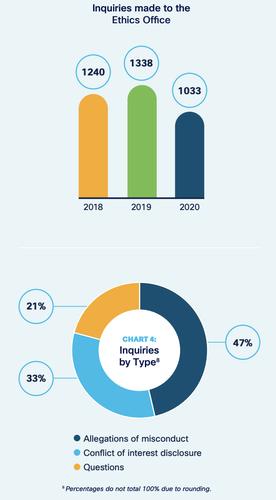People Behind CSR at Cisco: Why We Take Ethics and Integrity Seriously
How people behave inside a company is just as important as how they interact outside a company. Like any Corporate Social Responsibility program that aims to contribute to the greater good, maintaining internal ethical practices means those external programs have greater impact. Would you trust a company that gave back to local communities while their employees were bribing partners or abusing their privilege? Not many would, which is why Cisco takes ethics, integrity, and compliance seriously.
Laura Ellis works with the Ethics Office, a team that perpetuates a culture of inclusiveness and compliance across and within Cisco. It is their responsibility to ensure policies of the Code of Business Conduct (COBC) are understood by over 75,000 employees, who come to work with diverse backgrounds, beliefs, cultures, and languages. The Ethics Office oversees enquiries, allegations, and disclosures about possible policy violations internally and externally.
Here are a few things you should know about Laura:
Laura is refreshingly passionate about ethics.
Early on, Laura knew she wanted to help people, and she was interested in the big picture. At university, she studied Philosophy and Ethics. Her interest piqued at the different types of ethics she encountered in the world outside of ancient books and philosophers – medical ethics or euthanasia ethics. But something was missing in those university classes.
“The one piece missing from our course was business ethics,” Laura explains. “A business management course was covering business ethics at my school, and I enrolled in the module. We focused a lot on the collapse of a major energy company. It was shocking, ethically, how the company managed to survive for so long with such a toxic environment of deceit. The pressure to succeed and fear of failure were so immense that the company bankrupted itself with one of the biggest business scandals in history.”
From that moment, Laura was hooked. She was captivated by how to prevent a company from culturally eroding. Since she wasn’t sure how to get a job in corporate social responsibility, she focused on HR as her first entry point.
“When I interviewed for an admin assistant role at Cisco, I told the interviewer, ‘I want to work in your Ethics department.’”
Laura got the admin job, and staying true to her goal of working for the Ethics Office, she reached out to the Ethics team, curious to see how she could transition. At the time, the team didn’t have a space open, so she audited the team meetings to learn and understand how things worked. Within a year, she transferred to the Ethics team, and has been there for the past seven years.
Today, Laura’s role is global – she reviews all queries, allegations, and concerns sent to the Ethics Office internally and externally, categorizes them, and triages them to the appropriate teams (Legal, Investigations, etc.) or answers any questions. She also reviews Conflict of Interest Disclosures and external Gifts, Travel, and Entertainment policy processes. Giving gifts externally can be perceived as bribery, so Laura’s team needs to understand local regulations regarding public sector gifts.
Laura believes 99 percent of people want to do the right thing.
“I’m an optimist,” says Laura. “My first long-term manager at Cisco really shaped my mindset of hoping and assuming everyone wants to do the right thing into more of a risk tolerance approach. He was instrumental in helping me internalize the Cisco culture.”
Encouraging the Conscious Culture of Cisco helps in the long term – if an employee shares the same values as the company, they are more likely to safeguard the company from harm and to report potential threats. Cisco nurtures an open environment where employees can feel safe from retaliation if they report anything.
“It’s a fine balance between flexibility and prescriptive policies,” Laura says. “We don’t want our people to feel like they’re policed, but at the same time, we want them to understand that as a global company, we are 100 percent going to take any allegation or investigation seriously. There will be consequences if you’ve breached those policies.”
One of the interesting dichotomies of being in the compliance profession is that low case numbers do not necessarily mean people are compliant. “If you have none, it means no one is speaking up, and if you have too many, you’ve got a problem. I would say our numbers are normal. Ninety-nine percent of people want to do the right thing and our team is there to catch the ones that need a bit of help.”
Laura wants everybody at Cisco to feel like they own a piece of compliance, ethics, and integrity.
Training is a huge part of the Ethics Offices’ responsibilities; however, training doesn’t solve everything. It’s human nature to gloss over policies, and sometimes people are distracted during training. Laura’s team must get creative to help train and educate the entire Cisco workforce so that everyone understands the expectations of Cisco when they make business decisions.
The recent COBC was updated to use more videos, quizzes, and activities that helped employees solidify their knowledge of Cisco policies. On Cisco’s Employee Connection intranet site, the Ethics Office have done quizzes about certain policies. One such quiz revealed that a high percentage of respondents answered incorrectly to Cisco’s gift card policy. “We were amazed. Peoples’ perception of the policy was actually the opposite of our policy,” Laura laughed, “Of course, we doubled down on our efforts to mitigate that. We are very reactive. It is important to understand that the perception of a policy is just as vital as the actual policy.”
Many of Cisco’s policies have recently been fully digitized so that any employee can find any policy. Today, the process is as simple as searching in OneSearch, Cisco’s internal search engine.
The element of human error is one that worries Laura – if someone doesn’t read a policy, they likely aren’t aware that they may be doing something unethical. Part of Laura’s job is to ensure that there are controls and processes in place to prevent policy breaches from happening or catch them very early on.
“Our role is to be the guardrails on either side of a bowling alley. Our people can roll that ball without fear of breaking laws because we’ve put controls in place to prevent that from happening. That’s what helps me sleep at night.”



